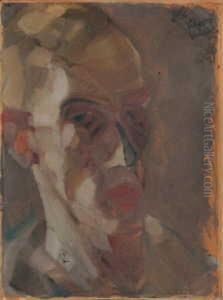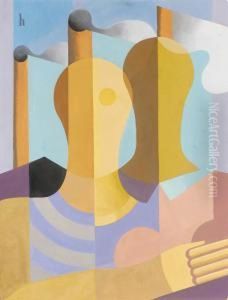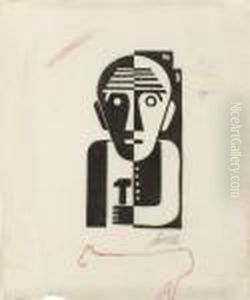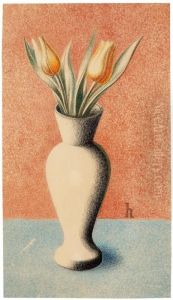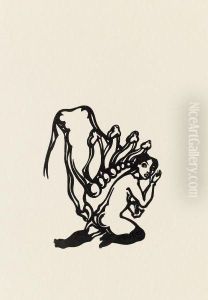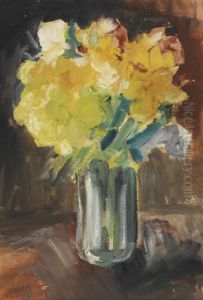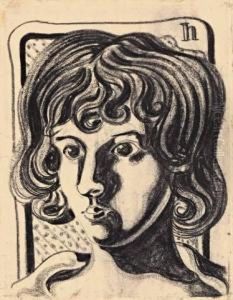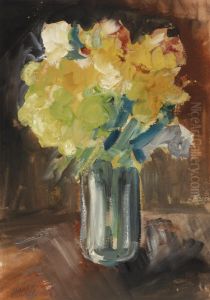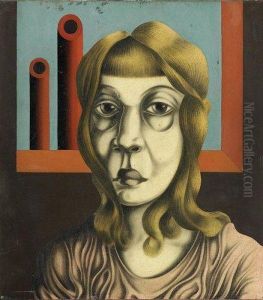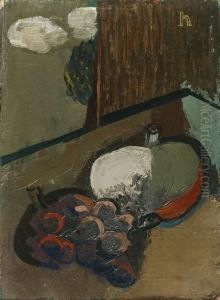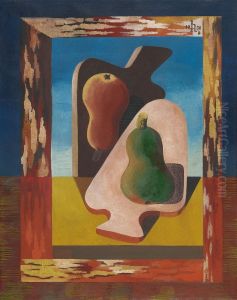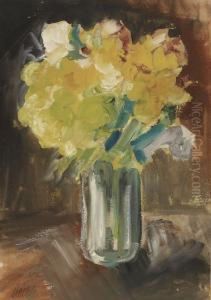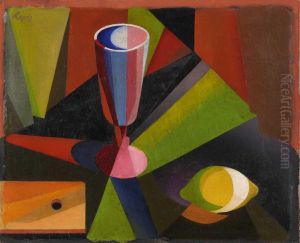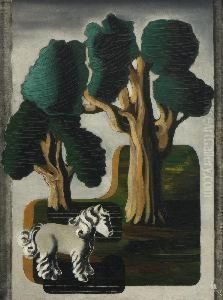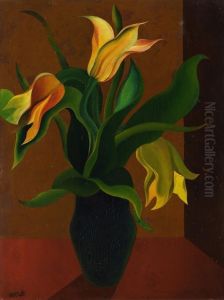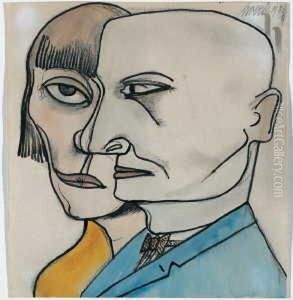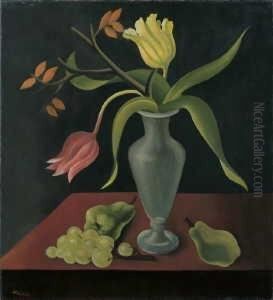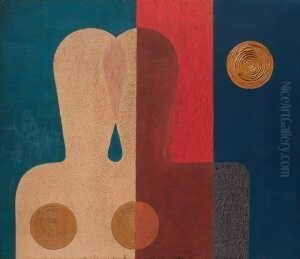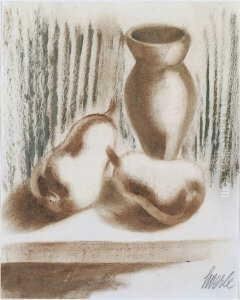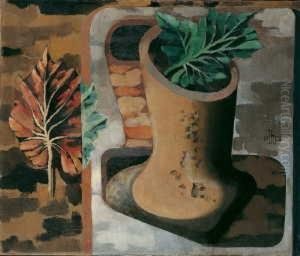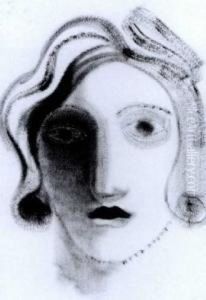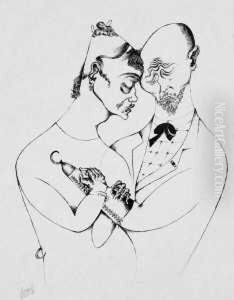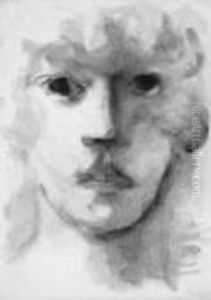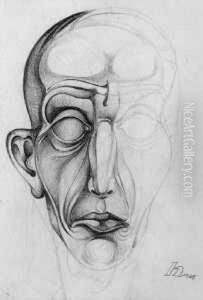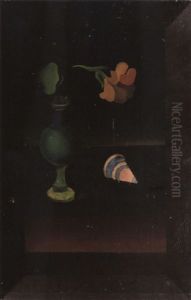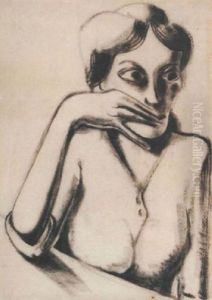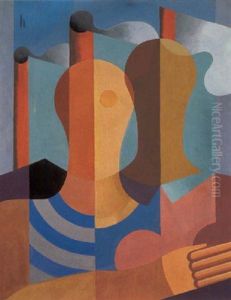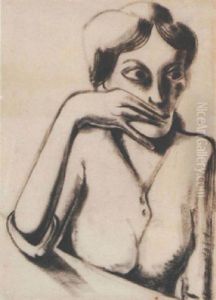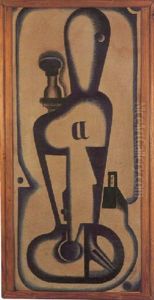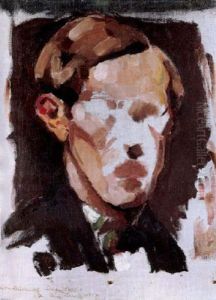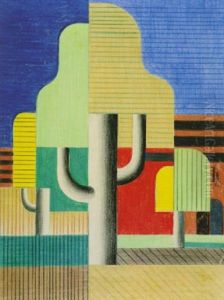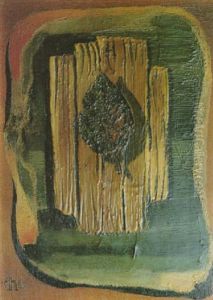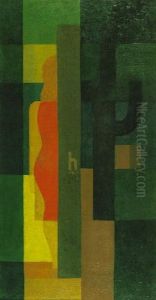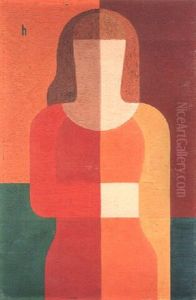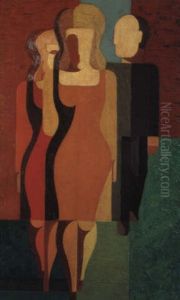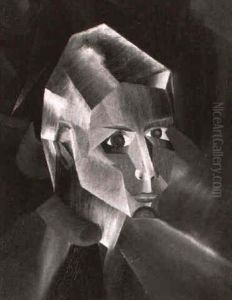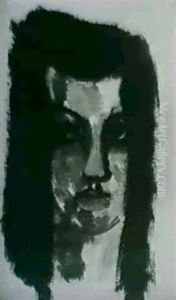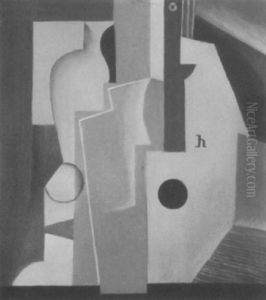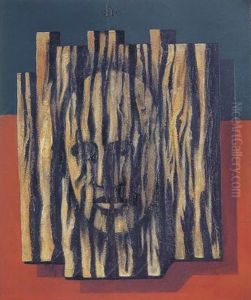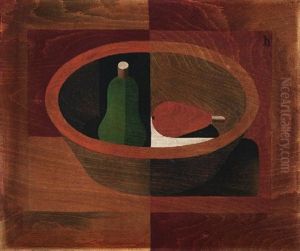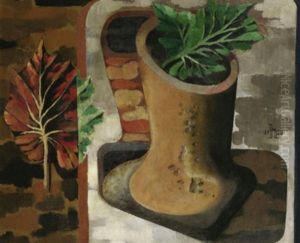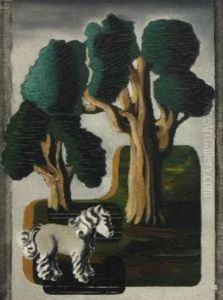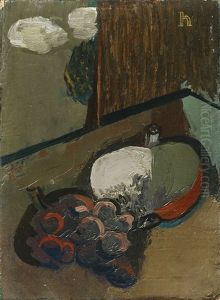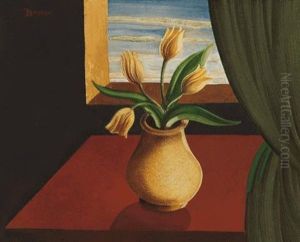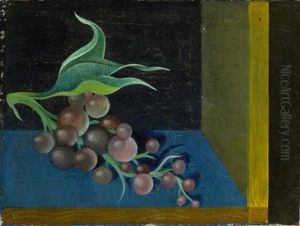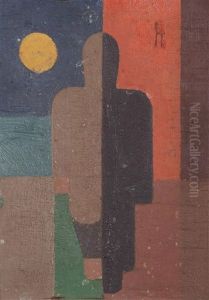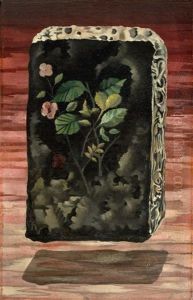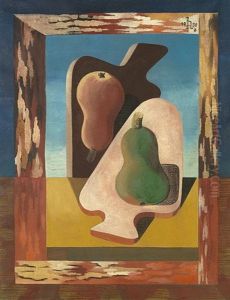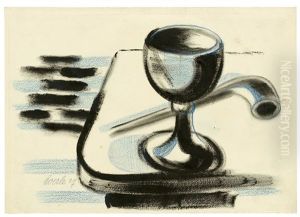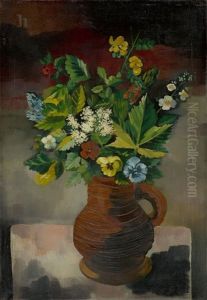Heinrich Hoerle Paintings
Heinrich Hoerle was a German constructivist artist known for his involvement with the Dada movement and his later work which dealt with social and political issues of his time. Born on March 1, 1895, in Cologne, Germany, Hoerle co-founded the 'Stupid' group in 1919 with his wife Angelika and other artists, which later became known as the Cologne Dada group. His art during this period was heavily influenced by the absurdity and anti-art sentiments of Dada, often incorporating found objects and unconventional materials into his works.
Hoerle's style evolved over the years, and he became known for his constructivist collages and paintings which often featured mechanical elements and abstracted figures. These works reflected the technological advancements and societal changes of the interwar period. He was also a member of the 'Cologne Progressives', a group of artists who were committed to creating art that engaged with the social and political issues of the Weimar Republic.
Throughout the 1920s, Hoerle's work became increasingly political, focusing on themes such as the plight of the working class, the horrors of war, and the struggles of the disabled veterans from World War I. His series of prints and paintings depicting crippled soldiers and disfigured veterans were particularly poignant and reflected his anti-war stance.
Tragically, Hoerle's life was cut short when he died of complications from leukemia on July 7, 1936, in Cologne, at the age of 41. Despite his early death, Heinrich Hoerle left behind a significant body of work that continues to be studied and appreciated for its social commentary and its contributions to the Dada and Constructivist movements.
